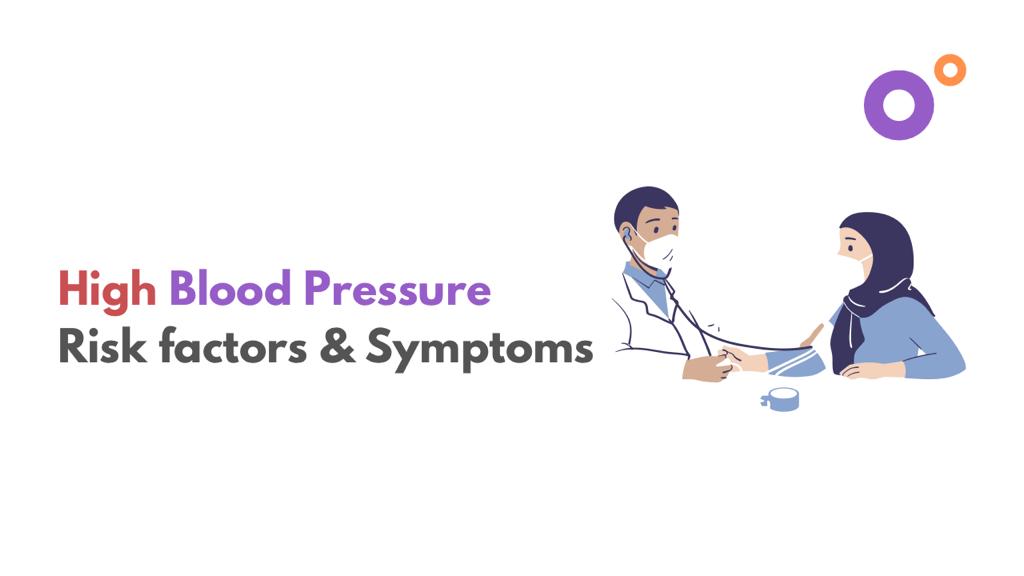
Things you should know about High Blood Pressure: Risk factors & Symptom
Medically reviewed by
DR Ritu Gupta
MD. General Medicine
High blood pressure (BP) is also called hypertension when the pressure of blood is higher than normal; when the blood pushes consistently high against the arteries walls. The heart has to work harder to pump blood through the arteries. In general, hypertension is a blood pressure reading of 130/80 mm Hg or higher.
The blood pressure is divided into four general categories
● Normal blood pressure is at 120/80 mm Hg or lower.
● Elevated blood pressure with the top number ranges from 120 to 129 mm Hg and the bottom number is below, not above, 80 mm Hg.
● Stage 1 hypertension withthe top number ranges from 130 to 139 mm Hg or the bottom number is between 80 and 89 mm Hg.
● Stage 2 hypertension has the top number is 140 mm Hg or higher or the bottom number is 90 mm Hg or higher.
Blood pressure higher than 180/120 mm Hg is considered a hypertensive emergency or crisis. One must seek emergency medical help with these blood pressure numbers. Untreated, high blood pressure increases the risk of heart attack, stroke, kidney damage and other serious health problems.
●Heart attack - Higher blood pressure levels can damage your arteries by making them less elastic, which decreases the flow of blood and oxygen to the heart. In addition, decreased blood flow to the heart can cause chest pain, also called angina. The longer the blood flow is blocked, the greater is the damage to the heart. The result is heart failure when the heart can’t pump enough blood and oxygen to your other organs.
● Stroke - High BP can also cause the arteries that supply blood and oxygen to the brain to burst or be blocked, causing a stroke. Brain cells die during a stroke because they do not get enough oxygen. Stroke can cause serious disabilities in speech, movement and other basic activities. A stroke can also kill you.
● Kidney Disease - Adults with diabetes, high blood pressure or both have a higher risk of developing chronic kidney disease.
Symptoms of high blood pressure
High blood pressure is called the ‘“silent killer’ because it usually has no warning signs or symptoms and many people do not know they have it. High BP usually develops over time because of unhealthy lifestyle choices, such as not getting enough regular physical activity. Certain health conditions such as diabetes and obesity also increase the risk for developing high BP. This can also happen during pregnancy. A few people with high blood pressure may have headaches, shortness of breath and nosebleeds but these symptoms aren't specific as they usually occur when BP has reached a severe or life-threatening stage.
When to see a doctor
Blood pressure screening is an important part of general health care. How often you should get your blood pressure checked depends on your age and overall health. High blood pressure can be lowered into a healthy range by making lifestyle changes along with medications. Talk to doctors at FirstCure Health about getting at least 150 minutes of physical activity each week (about 30 minutes a day, 5 days a week), not smoking, eating a healthy diet, including limiting sodium (salt) and alcohol, keeping weight in check, managing stress.